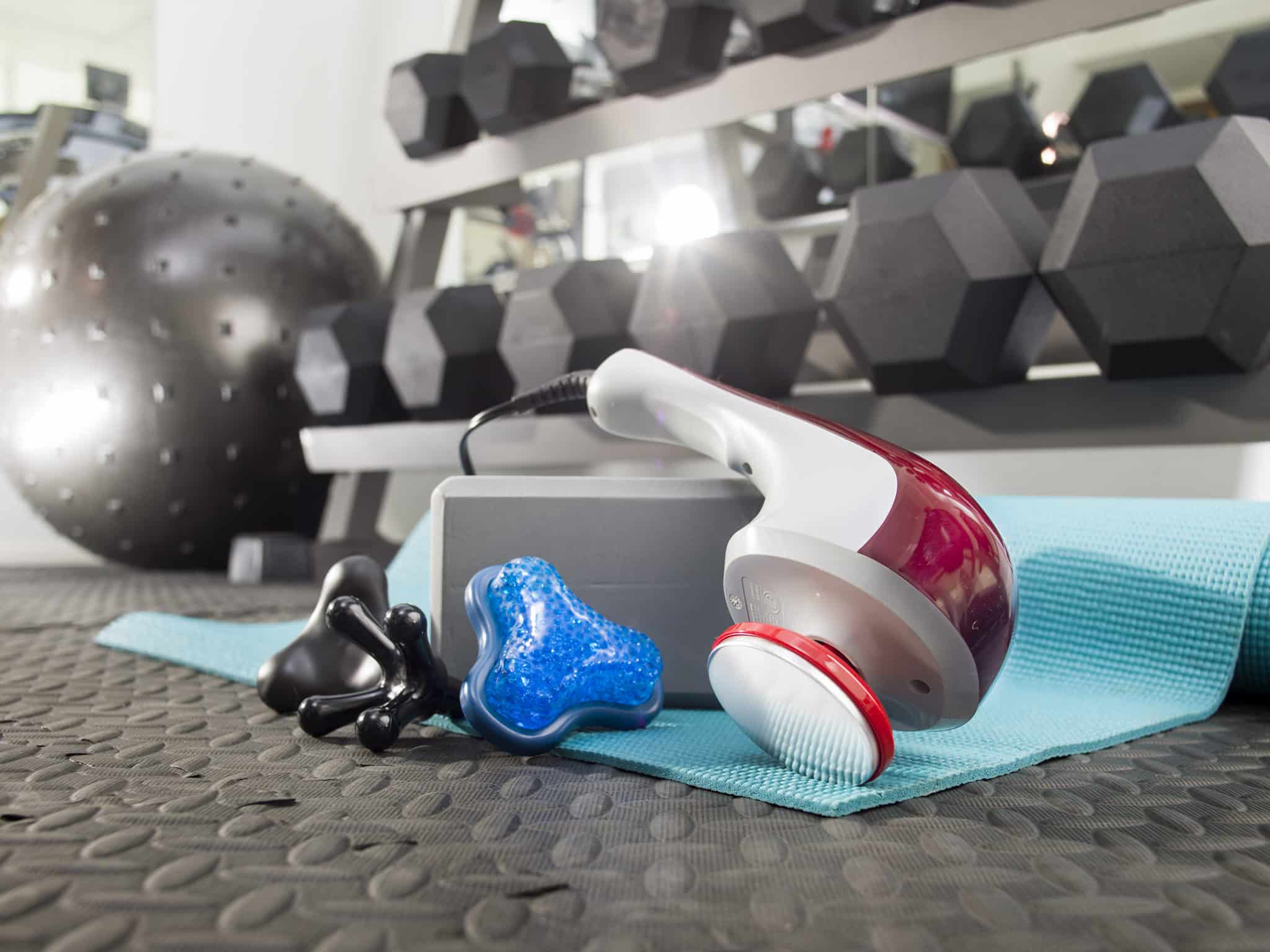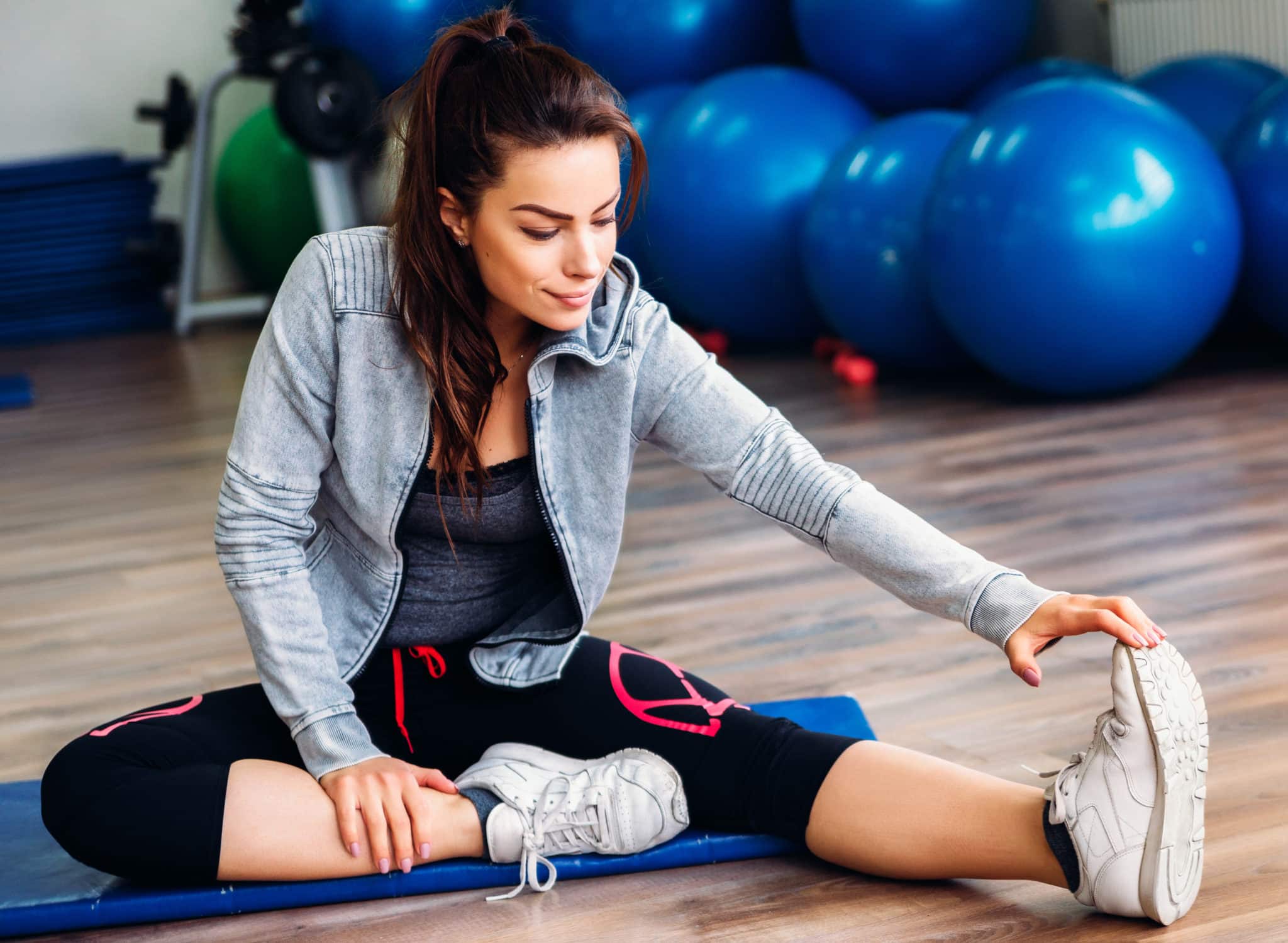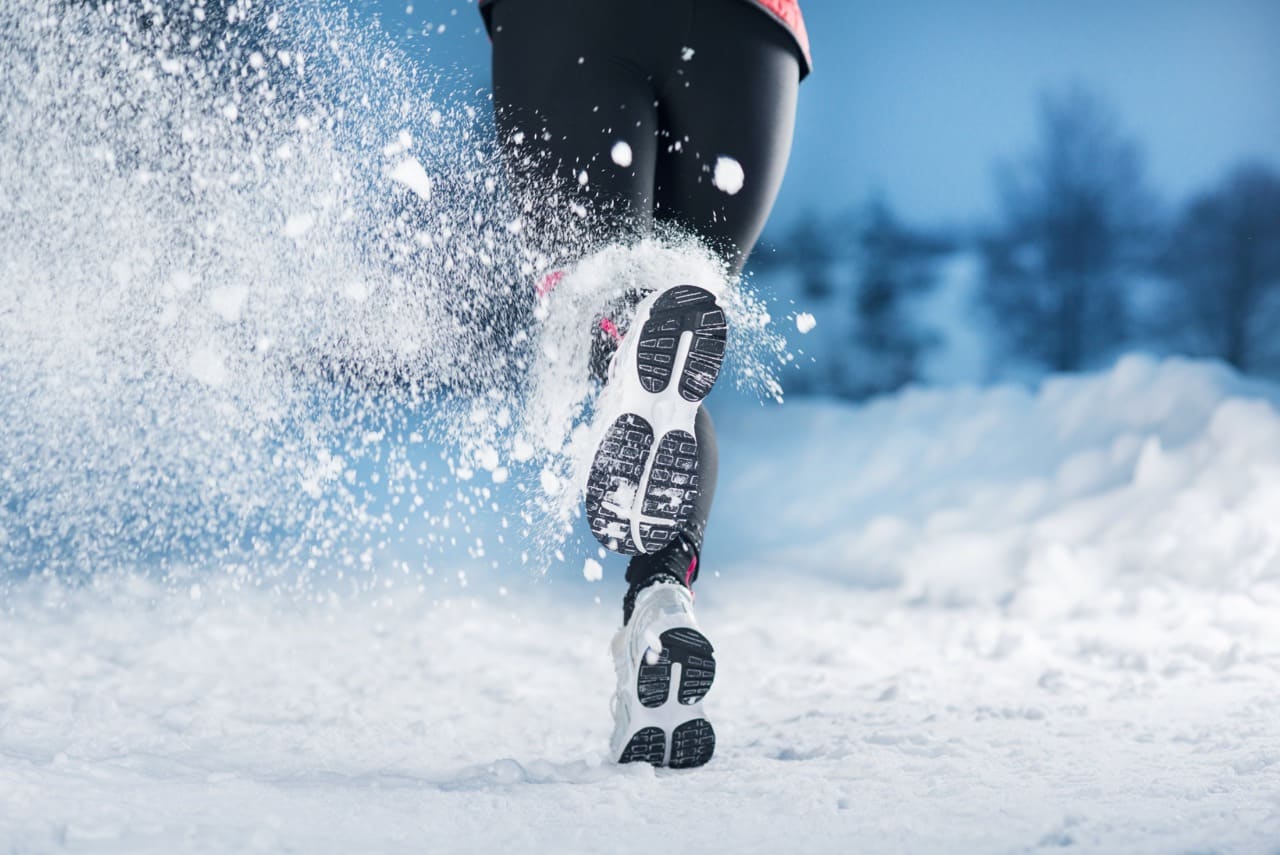This post contains affiliate links. Please see our disclosure policy.
An outdoor winter run can be truly exhilarating. Exercise-induced endorphins coupled with fresh air and Vitamin D can leave you feeling ready to conquer the world! Plus, running in cold weather comes with its own benefits!
But while running in cold weather can be wonderful, there are also certain things to watch out for, such as slipping on the ice, frostbite, or muscle injury or strain due to improper care.
In this blog, you find everything you need to know about running in cold weather so that your run is safe and you get the most out of your workout.
If you are new to running in any weather, start with my comprehensive Beginners Guide To Running for even more running tips and suggestions to get started!

Save This Article To Read Later
Table of Contents
- Benefits Of Running In The Cold
- What To Wear Running In Cold Weather
- Massage Muscles Before Your Winter Run To Prevent Injury
- Before You Run In Cold Weather, Do An Indoor Warm-up
- Get Better Traction On Your Winter Run
- Keep The Wind At Your Back When Your Running In Cold Weather
- Don’t Forget Your Reflective Gear
Benefits Of Running In The Cold
1. Burn More Calories
You read that right. If you run in cold weather, you burn more calories both during and after your run. Since your body has to use additional energy to generate heat, this amps up your basal metabolic rate after your winter run as your body returns to a normal temperature.
2. Mental Health and Clarity
There is less sunlight in the winter months, and typically people are less active. The ‘winter blues’ are a real thing but running in cold weather boosts serotonin levels, making you feel happier and have more energy.
The ‘me time’ component of running is scientifically proven to lower stress and give you mental clarity.
What To Wear Running In Cold Weather
The Rule of thumb is to dress as if it’s 20 degrees warmer than it actually is.
This doesn’t apply on a brutal zero-degree day or make a ton of difference; just dress warm!
But when it’s 20 degrees or above, keep it in mind.
So if it’s 30 degrees out, choose your outfit like it’s 50 degrees out. You don’t want to start your run in a parka and find yourself tearing it off mid-way through. You need to dress to compensate for how your body will warm up as you run.
Keep Your Feet Warm
Make sure your toes stay toasty with high-quality socks like Smartwool, which wick away moisture instead of cotton socks which hold in moisture and make your feet cold and clammy.
Toe warmers are also an excellent option for those cold and wet running days.
Select proper shoes with the least amount of mesh (we like Gore-Tex) to keep out slush.
Protect Your Hands
Our extremities are the places where we naturally lose the most warmth, so your hands are one of the most important things to keep covered on outdoor runs. Try these running gloves, and on extra cold days, or place small hand warmers in your gloves for additional warmth.
How To Protect Your Face When Running In Cold Weather
Your face will be exposed when you run in cold weather for the most part, so try my favorite hack — rub Vaseline on any exposed skin to avoid frostbite. The Vaseline forms a natural barrier between you and the cold.
In frigid temperatures, rub it on your nose, ears, and cheekbones. These areas are high spots on your face and can suffer frostbite more quickly.
How Many Layers to Wear When Running In Cold Weather
If you need a new excuse to buy workout clothes, winter running is it. Dressing for a cold-weather run is all about layers. Specifically, three important ones:
- An inside layer that should be moisture-wicking and lay tight against your body.
- A middle layer that should be insulating.
- And an outer layer that should be made of a weather-guard material.
I have a great list of my favorite winter leggings that will help build your winter running wardrobe.
Massage Muscles Before Your Winter Run To Prevent Injury

The need to warm up your muscles becomes even more critical in cold weather, which is why the Wahl Hot/Cold Therapy Massager is a great option. Heat therapy increases blood flow and loosens muscles, while cold therapy reduces muscle swelling and inflammation, and massage helps relieve muscle tension and soreness.
If you find that it takes your body a while to adjust to the cold temperatures outside, using a hand-held massage tool before you hit the road is a great way to aid in this process.
Before You Run In Cold Weather, Do An Indoor Warm-up

This is one of the best cold-weather running hacks we know: warm-up before you go outside!
Use some basic moves before heading out to build internal body heat and lubricate your muscles and joints. Start by stretching your legs, arms, hamstrings, etc., and then do a few reps of squats, push-ups, sit-ups, and lunges.
These bodyweight exercises will warm up your body, so the frigid winter air isn’t as much of a shock when you head out your door.
Related: 4 Common Running Mistakes To Avoid
Get Better Traction On Your Winter Run
One of the biggest impediments to getting a good run-in when it’s chilly outside is the fear of slipping on snow or ice.
When you can’t land your feet properly without slipping, it not only puts you in danger but hurts your form.
Avoid injury and get the most out of your winter runs by adding Yak Tracks or Nano spikes onto your shoes.
For even better stability in the snow, you can buy screw kits at running stores; the screws themselves go into your shoes to help improve traction in ultra-slippery conditions.
Word to the wise, though: certain shoes with air or gel can be damaged when you put the screws in, so be sure to ask a professional at the running store to help.
Keep The Wind At Your Back When Your Running In Cold Weather

A substantial wind chill can turn a semi-cold day into a bone-chilling one. Try your best not to run into the wind, and if you have to, do it on the first half of your run.
That way, the home stretch of your workout—when you’re more tired and sweaty—won’t be coupled with intense winds. Is there anything worse than cold sweat freezing on your skin?
Yeah, I didn’t think so!
Don’t Forget Your Reflective Gear
Less daylight in the winter months means less visibility, especially in the morning or late afternoon/evening. Most running clothes are black, to make matters worse, meaning you need to make yourself more visible.
Just because you see an oncoming car doesn’t mean they see you. Wear bright colors to be seen, or add some reflective tape or running lights to your outfit.
Stay safe and warm this winter with these cold-weather running hacks, and you’ll become a better runner despite chilly temps. Comment below on which hack you’re going to use this winter!



I think the first is o important, otherwise it’s easy just to skip a cold weather run. Personally, once I figured out how to dress right, I really enjoyed running, even in single digit temps. Not because I am some type of sadist, but because I didn’t feel cold. And being the only one out there running makes you feel like a little bit of a “bad ass” too!